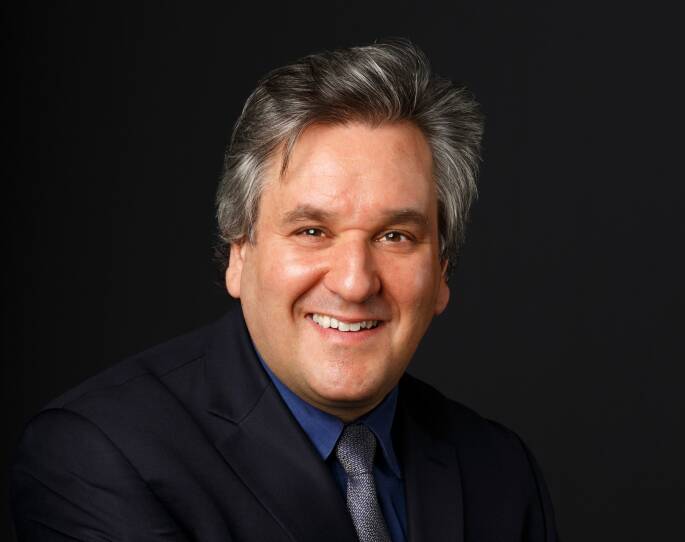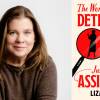As the most horrific war in Europe since World War II rages, the Boston Symphony Orchestra with the Tanglewood Festival Chorus will be performing perhaps the most powerful anti-war statement ever written by a European composer: Benjamin Britten's “War Requiem.” The piece was written in the shadow of World War II. GBH’s All Things Considered host Arun Rath says that “there is no glory in this music, just pain, lamentation and a desperate cry for peace.” It was first performed in the United States in 1963, also by the BSO, and aired by GBH. The archival footage is now available for free viewing online until April 8.
Tony Fogg, vice president of artistic planning for the Boston Symphony Orchestra, joined Rath to discuss the “absolutely uncanny” timing of the performance, which was planned years in advance, and the moving, sorrowful piece. Sir Antonio Pappano, the piece’s conductor, also joined CRB,GBH’s classical music station,earlier this week to discuss the performances, from March 31–April 2.
What follows is a lightly edited interview.
Arun Rath: First, we should say about the timing of these performances. There are some elements to these concerts you added — we'll talk about that — but the core performances of “The War Requiem,” this was planned well before Russia attacked Ukraine, yes?
Tony Fogg: Look, typically we we plan our programs about three years ahead. Our business tends to work in very long cycles, and we'd been looking forward to having the opportunity to work again, after a long absence with Sir Antonio Pappano, the conductor. And we talked about, you know, what the big piece might be that he would return to the Boston Symphony and we agreed on “The War Requiem.” So the timing is absolutely uncanny. We’d planned this, as I mentioned, about three years ago, without ever imagining that it would speak so much and so strongly to contemporary events.
Rath: And you have added a bit to the program as well, right?
Fogg: We're going to be starting with the performance of the Ukrainian national anthem with our chorus and orchestra, and there will be a dedication of the concerts this week to those who are suffering in this incredible, catastrophic situation, those who are bravely fighting against the atrocities of the war.
It's a very small statement of support for our fellow humans in a distant part of the world, but we know there's a fairly large Ukrainian community here in Boston. We wanted to make an important statement to them, but more so, we wanted to underline the relevance of this great piece and its message of peace, which it brings, as you say, perhaps more strongly than any other musical work in the literature.
Rath: Well, let's talk about that because again, it is incredibly powerful. I've called it an anti-war piece, and that's almost an understatement, if that's possible. It really just gets across the horror.
One thing I also want to ask you about, though, in the context of this — can you talk about one of the most powerful things in this piece is, there's a children's choir that that's part of it. And it's really impossible right now to think about the vast civilian toll that being taken in the war in Ukraine. And just talk about that and the form of this music.
Fogg: Well, let me tell you a little bit about the history of the piece and how it's put together. Benjamin Britten, arguably one of the most important composers of the 20th century, was commissioned to write a work for the reopening of Coventry Cathedral, which had been seriously damaged by enemy bombing during the Second World War. And the cathedral was rebuilt and opened in 1962 with this performance. It was, in fact, a whole festival of musical works put together for the reopening, and Britten was asked to write a large-scale work for chorus and orchestra.
So he decided that it would be a statement about the senselessness and the terrible destruction of war, and so wrote a work that combines the text of the Latin mass for the dead — the Missa pro defunctis — along with poetry by the First World War poet Wilfred Owen.
And so the piece is ingeniously put together. It's for a large orchestra, a small chamber orchestra within that group, a large chorus and then three vocal soloists, the soprano, a tenor and a baritone. And in the original conception, Britten wanted the soloists to be a Russian soprano, an English tenor, a German baritone — so representing the warring factions who were being brought together in the spirit of apology, of embracing each other. So the conception of the work is absolutely brilliant. It goes between the Latin text of the mass for the dead, these beautiful and very touching poems of Wilfred Owen.
The additional element that you just mentioned, Arun, is a children's chorus, who sings offstage. In our hall here, in Symphony Hall, the Young Children's Chorus will be positioned up on the second balcony. And they sort of have the effect of the voices of innocence coming from afar.
The score itself has, on the frontispiece, an inscription from a poem by Wilfred Owen, which says: “My subject is War, and the pity of War. / The Poetry is in the pity. / All a poet can do today is warn.”
And I think that message is one that is so powerful. You know, through music, an artist is able to speak to many aspects of what's happening in our society. The spirit of joy, the spirit of suffering, but also to catastrophes like this.
And it's a very profoundly moving work in its arc. It finishes with the “In paradisum” section and setting of the mass for the dead, where all the forces come together and it's a really transporting moment. The whole piece is utterly dramatic. It's got a fantastic arc to it. The way he uses — and the various elements, performing elements, how they interact is just a work of genius.
And it's a piece that never fails to make an incredible impact, but at this time, more so than ever. I've been sitting in on the rehearsals this week and the feeling among everyone assembled is just very emotional, very focused, very intense.
"I've been sitting in on the rehearsals this week and the feeling among everyone assembled is just very emotional, very focused, very intense."
Rath: And those people that you have assembled for it, you talked about the original performance and Britain's idea of having it be essentially pan-European. You mentioned Antonio Pappano, the conductor — from the conductor on down, it's a fairly pan-European group, yes?
Fogg: Well, it is, yes. We have an English tenor as specified, Ian Bostridge; a German baritone, Matthias Goerne. We did have a Russian soprano, but for a happy reason — which is that she's expecting a baby — she had to withdraw from our performances, so we have a very fine American soprano, Amanda Majeski, who's making her BSO debut. And our choruses are prepared by wonderful James Burton, who's been our director of choral activities here at the BSO for the last four years.

Sir Antonio Pappano, of course, is the music director of the Royal Opera at Covent Garden. He's English by birth, though trained here in America. And he understands the idiom of Britain's music so incredibly well. But he also is a real person of the theater, so he brings this great theatrical flair to the work. He manages to bring out the best in our wonderful chorus, the Tanglewood Festival Chorus, and knows the challenges that each of the three vocal soloists have to face in preparing and performing the piece.
Rath: And the emotional demands of a performance, right? You mentioned those rehearsals — I'm just wondering what they're like, how much Ukraine is in the air? Is that something that's being talked about, or how present is that?
Fogg: Well, look, I think we're all aware of just how incredible the timing is that we're doing this piece. You know, “The War Requiem” is not something you can put together in a short period of time. So the fact that we had this on the books for so long is really a little chilling. But certainly the text — the English text in particular — have a real poignancy now against the backdrop of this terrible war that's raging.
Rath: And before we go, I wanted it to mention, there's some more history here locally with this piece. The BSO gave the U.S. premiere of the Britten war requiem in 1963, right?
Fogg: That's correct, yes. At Tanglewood in July of 1963, it was the American premiere under the direction of Erich Leinsdorf, with three fine soloists and, of course, a children's chorus.
It was a huge event. It was, I believe, live television, radio and that performance was captured by WGBH, in fact. And we've made it available through our website free for viewing right at the moment. And even in black and white, with perhaps not the most sophisticated visual treatment, one still senses the great power of the piece and the sort of communal aspect of it very well, with the audience at the vast shed at Tanglewood — and the lawn, completely filled.
So it was clearly an important event when it happened, and we were so lucky that the BSO was involved in it. And we're lucky that our media partners were able to capture it, and we're able to view that in conjunction with these live performances.
Rath: Tony, it's been great talking with you, and just amazing when art can rise to a moment like this. Thank you.
Fogg: My pleasure, Arun.
Rath: Tony Fogg is the Vice President of artistic planning for the Boston Symphony Orchestra. We’ve been talking about the BSO’s wartime performance of Benjamin Britten’s “War Requiem,” featuring the Tanglewood Festival Chorus and the Britten Children’s Choir. That’s happening right now. You can also watch the historic Tanglewood premiere of “The War Requiem” we talked about online until April 8. This is GBH’s All Things Considered.






